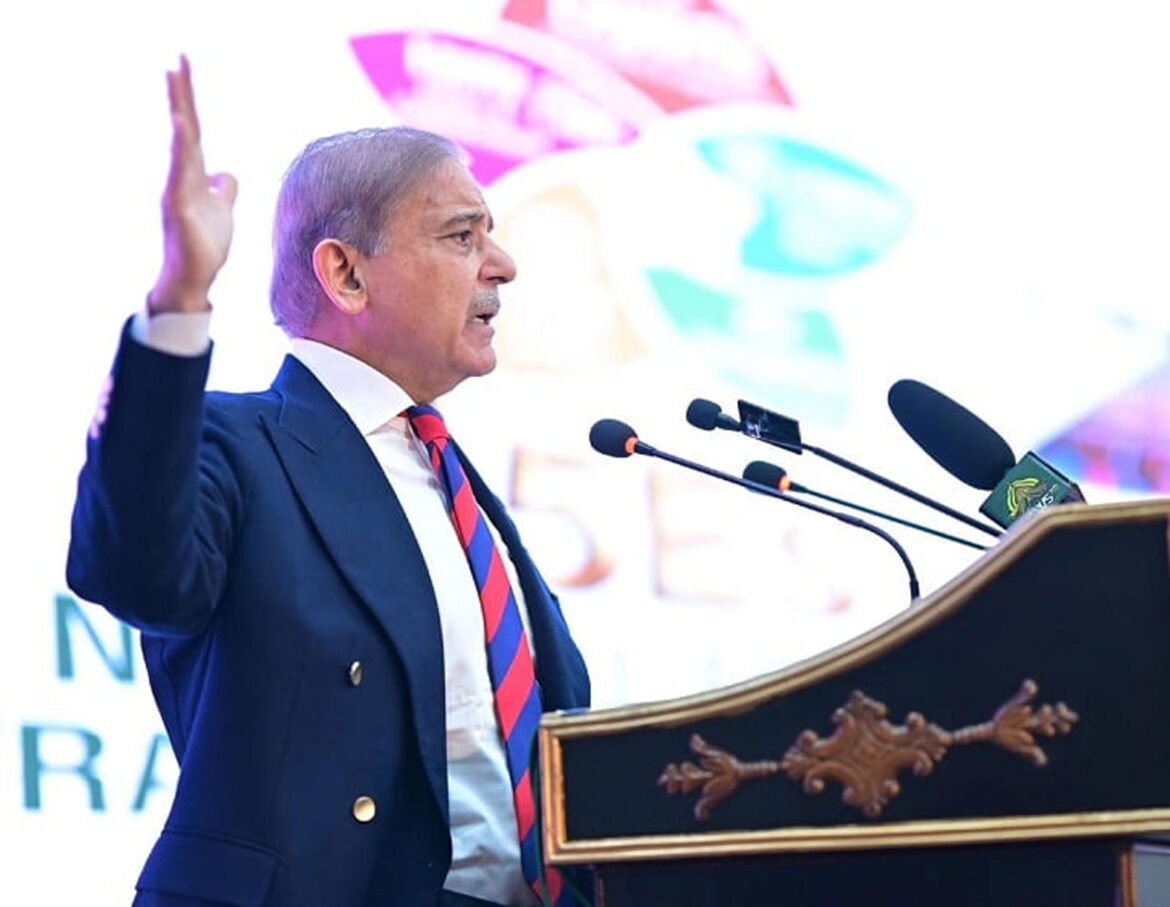On Tuesday, Prime Minister Shehbaz Sharif officially launched the National Economic Transformation Plan 2024-29, named “Uraan Pakistan: Homegrown National Economic Plan”, aimed at reviving the country’s economy. The plan focuses on addressing key challenges through a framework known as the “Five Es” — Exports, E-Pakistan, Equity and Empowerment, Environment, Food and Water Security, and Energy and Infrastructure.
At the launch ceremony in Islamabad, PM Shehbaz was joined by Finance Minister Muhammad Aurangzeb, Planning Minister Ahsan Iqbal, and Deputy Prime Minister Ishaq Dar. The prime minister emphasized the necessity for unity in tackling Pakistan’s economic difficulties and achieving growth. “In the last nine months, we have faced enormous challenges, but through the efforts of the federal and provincial governments, we have achieved macroeconomic stability. However, this is just the beginning,” said PM Shehbaz.
Highlighting the issues his government inherited, including losses from state-owned enterprises, circular debt, and corruption, the prime minister stressed the importance of reducing inefficiency, particularly in sectors like PIA, which had failed to privatize despite efforts. He also underscored the importance of export-led growth as key to Pakistan’s future prosperity.
Additionally, PM Shehbaz emphasized the need for a political consensus to move forward with privatization and reforms. He also pointed to the promotion of the digital and technology sectors, particularly artificial intelligence, as vital for the country’s future.
Foreign Minister Ishaq Dar, in his address, emphasized the importance of burying “petty politics” for Pakistan’s progress. He stressed that economic ownership and cooperation were crucial for the country to regain its place among the world’s top economies.
Finance Minister Aurangzeb reviewed the macroeconomic progress made in the past 12-14 months and reiterated the need for sustainable growth. He outlined the plan’s three main pillars: stimulating private investment, boosting exports, and optimizing public finances. Aurangzeb also noted the creation of a new tax policy unit to ensure policy continuity and efficiency in revenue collection.
The plan’s deliverables include achieving a sustainable GDP growth of 6% by 2028, creating one million additional jobs annually, attracting $10 billion in private investment per year, and reaching an export target of $60 billion by FY2028.
Information Minister Attaullah Tarar added that the reform package is designed to improve the lives of citizens, stimulate economic growth, and strengthen Pakistan’s economy, which has moved from the brink of default to stability. The plan aims to accelerate the country’s development with a Made in Pakistan approach, ensuring prosperity for all Pakistanis.



